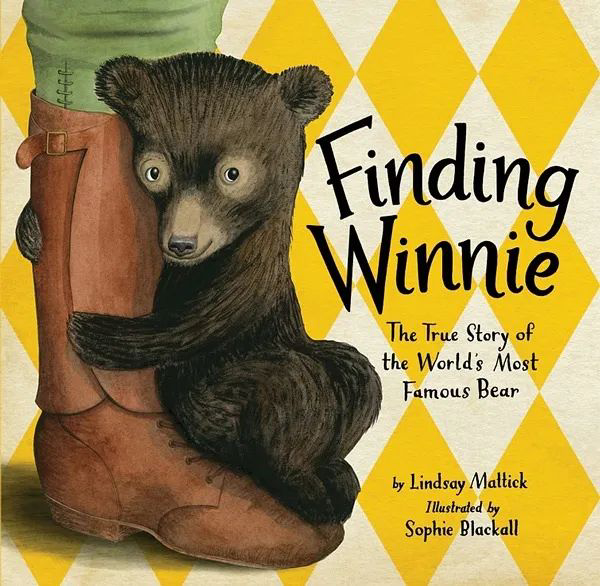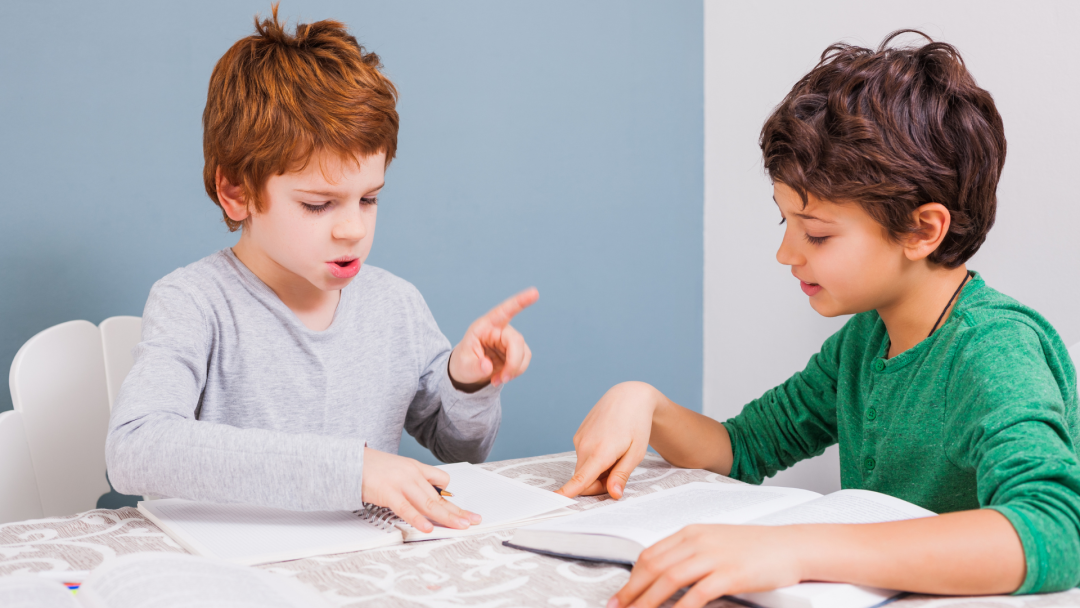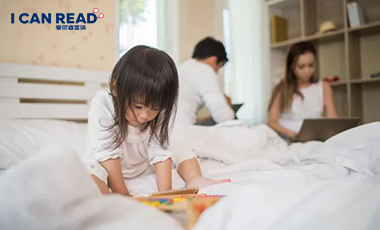01-02 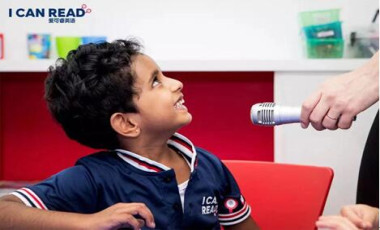
幼儿园英语启蒙的正确打开方式
孩子在幼儿园时期(3~6岁)是语言发展的完备期,在此期间是孩子对语音辨别和模仿等方面的反应十分灵敏,也是学习第二语言的最好时机。随着孩子年龄的增长,对语言的敏感度也会慢慢降低。在我国学习最多的第二外语就是英语,因此,幼儿园英语启蒙格外重要。
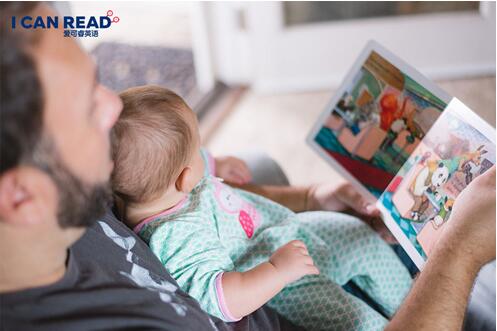
很多家长在为孩子启蒙英语时,常常会找不到正确的方法或是陷入误区,使得孩子在学习语言的关键期没有得到进展。今天,就带大家找到正确的幼儿园英语启蒙方式。
首先,创建良好的语言学习环境。中文作为世界上最难学习的语言系统之一,为什么对于中国的孩子来说学习中文没有压力呢?这是因为我们的孩子从小身处的语言环境就是在说中文。同样的道理,孩子的英语启蒙,需要创造英语的语言学习环境。例如通过英文儿歌给孩子“磨耳朵”;和孩子一起读简单的英文绘本激发孩子对英语的兴趣;用简单的英语句式、单词和孩子进行英语对话。在家中营造出较为浓郁的英语语言学习环境,让孩子“习惯”英语。
培养兴趣很重要。对英语感兴趣的孩子和对英语感到厌恶的孩子,学习的效率和成果都差距甚远。培养孩子对英语的兴趣和积极性,可以达到事倍功半的学习效果。例如,放一部孩子喜欢看的动画片英文原版;让孩子自己选择自己喜欢的英语阅读绘本;与孩子一起进行英语的角色扮演活动。通过这些不同的英语学习方式,激发孩子对英语学习的兴趣。
让孩子勇敢说出来。含蓄,是中国人的传统美德之一。但这也导致了很多人(不论是大人还是孩子),在学习第二语言时都会羞于表达。当孩子具有一定的词汇量基础时,就需要鼓励孩子多说。在家鼓励孩子多用英文表达自己的想法,如果可以,让孩子和外国人多进行沟通。这对孩子的语言表达能力和英语语法的理解都有很大的帮助。
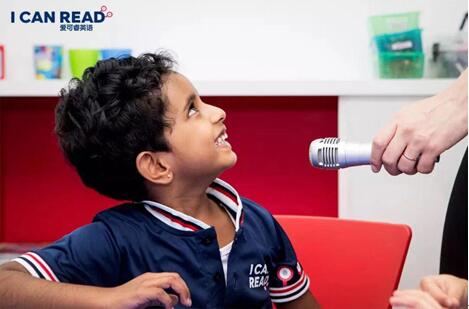
选择可以帮助孩子学习的少儿英语学习机构。相信现在的家长对英语学习机构都不陌生。随着大家对幼儿园英语启蒙的重视程度加深,少儿英语机构也越来越受欢迎。但是,少儿英语机构良莠不济,正确选择才能真正的帮助孩子。参考上述幼儿园英语启蒙的方法,在挑选少儿英语机构时,应该注意几点。1.机构最好采用全外教授课模式,让孩子可以快速适应英语学习环境。2.可以培养孩子的兴趣,激发孩子的好奇心培养孩子的自信心。3.机构的环境需要给孩子安全感,幼儿阶段的孩子对外界事物接受度较低,提供良好的环境让孩子可以静下心来认真学习。
幼儿园英语启蒙是孩子在英语学习过程中非常重要的一个环节,把握这一时期不仅能让孩子在启蒙阶段就能形成一定的英语思维、提高孩子英语发音的准确度,还能让孩子终生受益。
12-31 
在家如何帮助孩子提高词汇量?
现在,学习英语都强调从听说读写四个方面全面提高,而这四个方面的能力都离不开词汇量的储备。那么,除了学校课标要求记忆的单词以外,我们还能怎样提高孩子的词汇量呢?
以下这些方法,比“死记硬背”更靠谱哦! 1.不断地重复
重复听一个新的单词十次左右,我们便能深刻地记住这个单词。因此我们在教孩子新单词的时候,一定要确保孩子能明白单词的意思,更重要的是让孩子学会如何正确地使用它,在句子中使用新的单词。
爸爸妈妈可以在开车的时候、逛超市的时候甚至是在公园散步的时候,把这个新的单词融入到对话中,让孩子可以不断重复地听到这个新的单词。如果能在孩子睡觉之前再次重复新学的单词,对于孩子而言印象会更深刻。

2.以视觉形象呈现单词的含义
孩子学习一个新的单词的时候,可以通过图像的方式帮助他们记忆。比如,当孩子学习新的单词“elephant”的时候,家长向孩子展示在电脑、手机或者是书本中“大象”的图片。
另外,和孩子一起以画画的形式将单词描述出来,也是提高词汇量比较有效的方法,因为这样孩子会更容易与这个新的单词产生共鸣。
好好地保留孩子画的图画,每周或者每月让孩子说出图画中的单词,你将会惊奇地发现,他们很快就积累了比较多的新的单词。

3.一起阅读,阅读,阅读!
阅读是让孩子接触大量词汇的最佳方法。孩子阅读的内容越多,他们在书中看到的单词就越多,那么他们学到的单词也会越多。父母要养成和孩子一起读书的阅读习惯,最好能每天固定一个时间专门陪孩子一起阅读。
在阅读的过程中,如果遇到孩子不认识的单词,父母可以大概解释这个单词的含义,然后在阅读完毕后,问孩子是否还记得这个单词要表达的是什么意思,这对提高孩子的词汇量很有帮助。
当孩子养成良好的阅读习惯后,父母还可以和孩子一起讨论阅读的内容,帮助孩子更好地理解。

4.不要用过多的新单词“轰炸”他们
无论是成年人还是孩子,一次性接收过多新的内容,很有可能什么都记不住。因此,不要在同一时间给孩子输入过多的新单词,我们建议父母可以每周为孩子挑选5-6个新单词。
这些新的单词最好是选自日常对话中会用到的,然后在日常生活中提高使用这些单词的频率。家长越多使用某个单词,孩子对这个单词的记忆就会越牢固。

记住,生活中每天都会有很多机会可以帮助您的孩子学习和发现新的单词,但更重要的是,为孩子营造一种热爱新单词的氛围。因为学习词汇的过程越愉快,孩子提高词汇量的速度也会越快。 
More Tips to Help Your Child Expand Their Vocabulary To succeed in school and indeed life, children need a lot of words. Whilst the majority of vocabulary acquisition is done in school, kids can learn a lot from the adults in their life i.e. you. I Can Read have collaborated further and are happy to present you with even more tips to expand your child’s vocabulary.
1.Repeat, Repeat, Repeat
Typically, you need to hear a word approximately ten times for it to stick. When you introduce your child to a new word, make a note of it and strive to use it again in conversations. Try use the word in a variety of different contexts. This is an easy approach that doesn’t require too much effort. Bring up new words in the car, supermarket or even walking in the park. Repeat the words or use them again ideally before bedtime that same night.
2.Picture it
As your child acquires new words help them picture the word. For example if the word is a noun, show your child the object or show them a picture of it on your computer or in a book. Even better, if you have time, get them to draw it. This will ensure it resonates with them. Keep the pictures and review them weekly or monthly. You’ll be surprised how quickly they will accumulate new words.
3.Read, Read, Read.
We may be starting to sound like a broken record player but the message is clear, books are the best way to expose kids to a wide vocabulary. The more a child reads, the more words they see in print and the more words they will learn. Read with your child as often as possible. If you come across a word they don’t know, give your child the definition and continue reading. When you are finished reading ask them if they remember what it means. This is a good system and it will quickly become habit.
4.Don’t bombard them with too many words
Don’t overdo it. If you overwhelm a child with a plethora of new words they are unlikely to remember any of them, this applies to adults too. Our suggestion to you as parents is choose five or six new words for your child to learn each week. See how often everyone in the family can use those words in everyday conversation.Make this part of your routine and it will begin to feel like second nature.
Remember new words are everywhere and every day there are so many opportunities for you to help your child learn and discover new vocabulary.
Happy Vocabulary Building!
12-30 
你了解儿童节吗?儿童节的英文是什么?
在我国,每年6月1日是属于孩子们的节日,每到这一天学校会为孩子们组织一系列活动,很多家长也会带孩子们去游乐园水族馆等地方玩。我们将这欢乐的一天称为儿童节。那么你知道儿童节的英文怎么说吗?你知道儿童节的由来吗?
我们通常说的儿童节,其实就是国际儿童节,英文是International Children's Day(或称为Children's Day)。在儿童节当天,我们就可以用儿童节的英文说:Happy International Children's Day!

了解了儿童节的英文,现在我们来了解一下儿童节的由来。如今我们会以各种方式来庆祝儿童节,但儿童节最初设立时其实并没有想象的那么美好。
国际儿童节的设立,与二战时期发生的利迪策惨案有关。为了防止这类恶性事件再次发生,反对虐杀和毒害儿童,保障世界各国儿童生存权、保健权和受教育权、抚养权,1949年11月,国际民主妇女联合会在莫斯科举行的理事会议决定以后每年的6月1日为国际儿童节。

而我国最早的儿童节是每年的4月4日,是1931年根据中华慈幼协会的建议设立的,1949年12月,新中国成立之前的“四四儿童节”通常会以唱歌比赛、操练比赛来庆祝儿童节。新中国成立后,中华人民政府政务院决定废除旧儿童节,将6月1日国际儿童节作为统一的儿童节。但在民间的约定俗成下,香港和台湾的儿童节日期还是每年的4月4日。
世界上许多国家都选择6月1日作为儿童节,但有些国家还是会选择自己国家设立的儿童节日期,并且有一些十分有趣的习俗。

日本:日本可以说是世界上庆祝儿童节次数最多的国家了。3月3日女孩节是专为小女孩设立的,在这一天女孩子们会收到父母送的精致玩偶,5月5日男孩节是希望家中男孩可以鲤鱼跃龙门,11月15日“七五三”儿童节是为了三岁、五岁和七岁的小朋友设立的。
韩国:韩国的儿童节是每年的5月5日,由“男孩节”演变过来。这一天同时也是韩国的公假日,在这一天孩子们需要穿上韩服,体验传统的韩国文化。
巴西:以热情著称的巴西,每年的儿童节设立在8月15日,这一天同时也是巴西的“全国防疫日”,所以每到这一天,各地的医生们都要为孩子们看病。10月12日的“圣母显灵日”也常常作为儿童节,也会有一些庆祝活动。
12-30 
生日用英语怎么说,你的发音正确吗?
生日用英语怎么说?相信每一位小朋友在过生日的时候,都会看到自己的生日蛋糕上放着一块写有:Happy birthday的巧克力牌子。这是生日快乐的意思。生日用英文说是birthday,但是生日用英文怎么“说”才是正确的呢?
生日birthday的英式发音是['bɜːθdeɪ],而美式发音为['bɝθde],看上去好像差不多,但是还是要注意读音上的细节区分。区分清楚英音和美音,对学习英语也会有很大的帮助哦。

例句:
He gave her an expensive fur for her birthday.他送给她件昂贵的毛皮衣服作为生日礼物。
Tom's birthday is this week.汤姆的生日就在这个星期。
相关短语:
birthday present 生日礼物
birthday card 生日卡片
birthday party 生日宴会
happy birthday 生日快乐
知道了生日用英语怎么说,再来让我们了解一下生日的起源和一些趣事吧。
在希腊文化中,希腊人相信人生而就有自己的守护精灵(spirit),它将陪伴人们度过一生。自己的专属精灵和某个神有着神秘的联系,而精灵看顾的人正式这个神的生辰产生的。罗马人也有同样的认知。
而在生日蛋糕上点蜡烛(candle)的习俗同样源于希腊人。因为根据古希腊的民间传统信仰,在生日点燃的蜡烛是具有神奇的力量(power),这股力量可以帮助人实现一个愿望(desire)。同时点亮蜡烛也意味着对过生日的人表达敬意,为他带来好运气(luck)。祝贺和送礼同样是生日必不可缺的流程,这一点中外都是有的。在西方,这一习俗来源于魔法(magic),生日贺词可以带给人好运。

随着世界历史的不断发展,庆祝生日已经成为世界各地(world)的传统。虽然大多庆祝方式不尽相同,但也有一些地区至今保存了有趣(interesting)而又独特的庆生方式,例如我国的传统就是在生日当天吃长寿面(birthday noodles)。

澳大利亚:全家人要在孩子生日当天到海里游泳(swim in the sea),随后在海滩(beach)上野餐(picnic),来庆祝孩子的生日。
俄罗斯:战斗民族俄罗斯,过生日时不是吃蛋糕,而是吃生日馅饼(pie)。
挪威:过生日的孩子需要咋全班同学面前与舞伴跳舞,其他小朋友为其唱生日歌伴奏。
12-20 
阅读是一切学习的基本前提
阅读是一切学习的基本前提
8 Reasons why reading is so important for children
阅读是孩子成长过程中必须培养的一项重要技能,对于孩子在小学、中学甚至是大学的求学过程中,都起到了关键性的影响。
无论是学习新的知识还是查询有用的信息,都需要具备阅读能力。阅读能力直接与理解、沟通、思考、运用、表达、写作等能力挂钩,是影响学习成绩的最主要因素,同时也会影响孩子日常生活的方方面面。
Reading is an important skill that needs to be developed in children. It is necessary for survival in the world of school, college and university. The ability to learn about new subjects or find helpful information depends on the ability to read. Poor reading is the single most significant contributor to underachievement at school and affects every aspect of a child’s life.
以下就是阅读对于孩子来说非常重要的八大原因:
Here are eight reasons why reading is so important for children:
1.阅读有助于培养重要的语言技能
阅读的书越多,孩子的语言能力就会越强。通过阅读,孩子能学习到正确的短语搭配和语法规则,提高孩子的口语能力,让孩子更会表达自己。
有的时候,孩子可能会遇到不认识的新单词,但是他们可以结合上下文来猜测这个单词的意思,从而加深对生词的理解。
✦ Books Help Develop Vital Language Skills
The more children read stories and are read to, the greater their language skills. Reading exposes children to proper grammar and phrasing.
It enhances development of spoken language skills and aids a child’s ability to express themselves verbally.
Even when a child doesn’t understand a new word, they absorb meaning from the context, which in turn deepens their understanding of it the next time they encounter the word.
2.阅读会激发孩子的想象力
当我们阅读的时候,我们的大脑会将书中的人物、地点以及发生的事情转化为图像。当我们的孩子在读故事书的时候,他们不仅会试着感受书中人物的情感活动,还会利用插图、凭借书中的情节,在脑海中想象书中所描绘的世界。
家长可能会被书中的文字所限制,无法延伸想象,但孩子所拥有想象力的丰富程度远远高于成人,他们可以通过阅读来激发自己无限的想象力和创造力。因此提升和发展想象力的关键在于,从小培养好的阅读习惯。
✦ Reading Develops A Child’s Imagination
When we read our brains translate descriptions of people, places and things into pictures. When a child is engaged in a story, they are imagining how characters are feeling.
You are only limited by what you can imagine and the worlds described in books, as well as the views and opinions of others will help a child expand their understanding of what is possible.
By reading written descriptions, a child’s mind can create an image in their head, instead of having the image placed in front of them on a TV screen.
3.阅读可以提高注意力和专注度
与其他丰富多彩的活动不同,孩子在阅读的时候需要安静地坐着并保持较长时间的全神贯注。当孩子被书中的情节吸引时,他的注意力将会在书中停留很长一段时间,并完全沉浸在书中世界。
阅读不仅是一切学习和理解力的基本前提,还是所有认知行为中最能促进专注力的。如果孩子养成了良好的阅读习惯,他们会比其他孩子更专注,也会更爱学习。
✦ Reading Improves Focus and Concentration
Unlike many other activities children engage in on a daily basis, sitting down with a book takes long periods of focus and concentration.
Being fully engaged in a book involves closing off the outside world and being immersed in the text, which over time will strengthen attention span.
When reading, children have to sit quietly so they can focus on the story. If they read regularly, they develop the ability to do this for longer periods of time.
4.阅读有助于扩充词汇量
喜欢阅读的孩子,通过书本提升自己的语言能力的同时,词汇量也会积累得更多。这些孩子在阅读的过程中能积累到较多的好词佳句素材,无论是写作还是日常沟通,他们都能有更出色的表现。
✦ Reading Expands Vocabulary
A prolific reader’s vocabulary is simply larger. Reading improves a child’s vocabulary and leads to more highly-developed language skills.
This increases exponentially the more a child reads, giving them extra words to use in everyday life.
5.阅读能提高理解能力和学习能力
爱阅读的孩子能够利用他们脑海中的丰富词汇量,快速提取、理解听到的或看到的语言的意义。同时,他们可以对学习内容进行精细加工,这也是形成长期记忆的主要方法,因为理解性记忆的效果会比机械性记忆的好更多。
✦ Reading Improves Learning Ability
The more you read, the more you understand. Through reading, children will begin to understand the world more. And they can transfer the short-term new knowledge into their long-term memory.
6.阅读能提高沟通能力
在日常生活中,喜欢阅读的孩子往往会是更善于沟通的人,因为他们拥有更多的词汇选择和更好的沟通技巧,同时他们也可以更准确地表达出自己内心的观点。
✦ Reading Improves Communication
Children who read a lot tend to be better communicators as they have a more varied range of words to express how they feel and to get their point across.
7.阅读能扩充知识面
“书中自有黄金屋”,孩子可以从书中学到历史、科学、人文、自然等不同类的知识。孩子读的书越多,他所涉猎的知识面也就会越广,这对于他的学习和生活都会有很大的帮助。
✦ Reading Expand the Breadth of Knowledge
Through reading, children can expose themselves to new things and new information. They will begin to understand the world more.
8.阅读能提高解决问题的能力
在阅读的时候,孩子能从书本中获得解决问题的不同方法,这些方法技巧会在他们需要用到的时候从脑海中浮现,所以阅读能力强的孩子在处理问题上,会比欠缺阅读能力的孩子反应要快。
✦ Reading Develops Problem Solving Skills
Reading is an essential way which can help children find out some solution.
Whenever they meet with difficulties, they will quickly adapt and timely resolution.
阅读是打开世界的一扇门,如果能从小就引导孩子喜欢阅读,不仅能提高他们学习能力和思考能力,还能最大限度地激发他们的想象力,帮助他们找到通向世界的更广阔的道路。
So please, inspire your children to read. Give them access to plenty of reading material that they’ll enjoy and discuss it with them. Sample everything – traditional printed books, assigned school reading, classic children’s novels, fairy tales, eBooks; even the Internet. As you help your child you may find there is a world full of wonderful children’s literature that YOU can enjoy too.
12-20 
如何提高孩子的阅读能力?
如何提高孩子的阅读能力?
How to read well?
阅读是学习语言中最重要的环节,通过阅读,孩子不仅可以全面提高听说读写的能力,还能提高运用语言的能力。提高孩子的英语阅读能力,有以下三个秘诀。
Reading is one of the most important parts of language learning. Stories allow children to easily practice all four language skills - listening, speaking, reading, and writing. A good reading passage can highlight children’s language abilities. There are three main ways to perfect your children‘s reading skills.
1.让孩子大声朗读英语
朗读有着极其重要的教育意义,是提升各项语言能力的绝佳方法。孩子可以通过朗读来锻炼自己的发音,当他们参与到分组轮流朗读的时候,必须要全神贯注地倾听别的同学朗读的内容,以便跟上进度,与此同时还能增强孩子的团队合作能力。在家陪孩子学英语的时候,也可以选择玩“大声读英语”的游戏,孩子和爸爸妈妈轮流读一篇文章、一句话、一个单词,甚至是一个发音,长久坚持后,对应的发音组合就会形成“运动记忆”,孩子会更习惯正确的发音。通过大声朗读英语,孩子可以锻炼眼脑并用,提高阅读的速度,丰富阅读的方式,让阅读变得更有趣。
✦ Reading out loud
Reading out loud in a group is an excellent way to improve a variety of language skills. When it is his or her turn to read, your child practices pronunciation by saying the words out loud. When other children are reading, your child must listen closely and follow along through the passage. By listening and reading in front of one another, children can understand how the different sounds are spelled and spoken.
Reading out loud can easily be turned into a game with children taking turn reading one paragraph, one sentence, one word, or even one sound at a time. Finally, reading out loud is a group activity that enhances a sense of cooperation and teamwork.
2.锻炼阅读理解的能力
当孩子在阅读的时候,可能会遇到看不懂的地方,爸爸妈妈可以在孩子阅读新的书本之前,先把这本书的内容读一遍给孩子听,大概告诉他们这本书讲的是什么。他们在听故事的时候,会边听边思考,这样最大的好处在于可以让孩子全身心融入到故事之中。
孩子自己看完书之后,父母可以引导他们复述故事的内容,锻炼他们的阅读理解能力的同时,还能提高他们的分析能力。
虽然有的时候我们会比较重视孩子能不能从故事中学会单词和正确地发音,但其实理解故事的内容也同样重要,因为故事会传递给孩子积极的生活意义。更重要的是,理解故事的内容,会让孩子沉浸在故事中,并且发掘出故事的乐趣。
✦ Practice reading comprehension
When reading a new book, parents can read it to your children first and tell them the general idea. Listening closely to the story will also allow for a greater understanding of its meaning.
Reading comprehension ensures that children can answer spoken and written questions about the story afterwards. Stories often convey a message that can teach our children good life lessons. Although it is important to recognize words and say them correctly it is also important to understand the content of the story. And most importantly, understanding a story lets children delve into topics of their choosing and have fun.
3.一起享受阅读的乐趣
鼓励孩子培养每天都阅读的习惯的同时,父母可以参与到其中,与孩子一起阅读。一开始可以选一些孩子感兴趣的内容来阅读,无论是有趣的故事还是恐怖的故事,有关恐龙的故事还是与公主相关的故事,都可以选来阅读,让孩子先对书产生好感。当孩子发现阅读的好处时,他们会开始真正地享受阅读的时光。
在阅读的时候还可以穿插很多有趣的阅读游戏,当孩子觉得阅读非常有趣的时候,学习语言就不再是一项任务,而是一种爱好!
✦ Have fun together
Once children begin to see the benefits of reading they can start to enjoy it. Find stories that cater to the interests of your child and try to read along with them at home. It doesn’t matter if they’re funny stories or scary stories, stories about dinosaurs or princesses. As long as your child has an interest in the content they will be more likely to associate reading with fun. There are also a number reading games you can play with your child to make reading more fun. Once a child enjoys reading, language learning is no longer a task but a hobby.
培养孩子对阅读的兴趣,不是一朝一夕就能做到的事情,需要耐心和信心逐步引导,让孩子真正热爱读书,让阅读成为孩子的一种生活方式!
Fostering children‘s interest in reading can't be achieved in a short time. You need to be patient and lead them progressively.
Learning can become a way of life which helps your children to achieve their greatest potential.
12-20 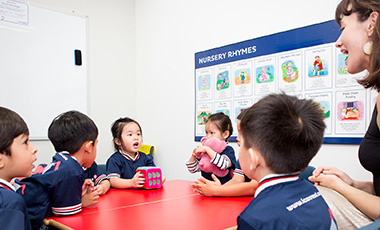
让阅读变得更有趣的创意方法
让阅读变得更有趣的创意方法
Creative Ways to Make Reading Fun
随着网络科技的发展,我们越来越依赖网络的同时,孩子也越来越难找到完整的时间来阅读。但作为父母,真正高质量的陪伴,其实是陪孩子一起阅读。
阅读不应该局限于课堂上或者培训班上,父母陪着孩子一起阅读很有可能会是孩子在课堂外阅读的唯一时间。而且,培养阅读习惯和独立阅读的能力对孩子来说非常重要。
我们准备了一些令阅读变得更有趣的方法。这些方法都比较简单,有些需要几分钟,有些可能会花费长一点的时间;有的可以一个人完成,有的则需要整个家庭共同来完成。通过这些有趣轻松的方法,您很快就会发现,您的孩子越来越享受阅读的时光。
It is fair to say that with so much technology and online distractions it can be hard for children to find the time to read. This does not mean however, as parents you shouldn’t make reading with your child a priority.
Reading should not just be the preserve of the classroom or tuition sessions. Regular read-aloud or solo reading time is extremely important. If you think about it, the time you set aside for reading with your child may be the only time your child will read, or be exposed to reading, outside the classroom.
Here are some fun suggestions to help make reading fun. Most of the activities are pretty simple. Some take just a few minutes; some could take a little longer. Some could involve another person and others could involve the entire family. By taking a playful, pressure-free approach, you'll soon ensure your child enjoys reading time.
1.首音游戏
刚开始学习英语阅读的读者会非常认同字母是代表声音的符号,因此可以在英语阅读启蒙阶段进行强化声音的游戏。从所有孩子熟悉的词开始,如他们的名字和名字中的第一个音节,要求他们在房间里寻找与名字相同的首字母发音的物品,又或者一起朗读诗歌、童谣和押韵的书本,都是强化声音概念的好方法。如果想要让孩子更好地融入到书本的故事中,还可以用故事主角的姓名来做练习。这是我们在I CAN READ课堂中会惊醒的一项游戏,很受我们的学生欢迎。
✦ First Sound Game
Early readers are still coming to terms with the notion that letters are symbols that stand for sounds. To familiarize him with sounds, read poems, nursery rhymes, and rhyming books together A good way to reinforce the idea of sounds is to start with the most familiar word of all: your child's name and the first sound in their name. Ask them to find things around the house that start with the same first letter sound as their name. To incorporate into the story get them to do the same exercise with the main characters name. This is an activity we do in the I Can Read classroom and our students love it.
2.阅读前的预热
如果您的孩子不了解故事的内容,那么他们可能会失去对阅读的兴趣和热情。因此我们可以在开始读书之前,让孩子先看一下书本里的图片并向他们提出问题,如“你觉得这个故事讲的会是什么?”“你觉得接下来会发生什么事情?”等问题,通过图片让他们猜测故事的发展线索,通过问题引导他们预测故事会发生什么,以此来吸引他们即将发生的事情感到兴奋和激动。
✦ Pre-Game the Story
If your child doesn't comprehend what a story is about, they are likely to not be enthusiastic about reading time. Before starting the book ask your child to look at the pictures and ask questions to get them excited and interested about what's coming: "What do you think the story is going to be about?" "What do you think will happen?" Questions like these help them predict the story while the pictures offer them clues to what’s about to happen.
3.随时随地学单词
对于阅读而言,最重要的是拥有广阔的词汇量。在阅读的过程中,如果遇到一个特别难的或者从来没见过的单词,您可以停下来问孩子知不知道单词的意思,让他们根据上下文来猜测单词的含义。当阅读完一个故事后,最好能让您的孩子学到两至三个新单词。而且可以随身带一个笔记本,把生词记录下来并把它加入到日常的对话中,每周还可以测试一下孩子是否真的掌握了新的单词。
✦ Pick Out Words
Building a broad vocabulary is essential for reading comprehension. Stop occasionally if you come across a particularly difficult or unusual word, ask your child what they think it means, have fun with potential meanings but make sure by the end of the story they have a take-away of at least two or three new words. If this is done weekly just think how quickly your little learner will acquire new vocabulary. Keep a notebook with the words for yourself so you can incorporate the new vocab in your daily conversation from time to time.
通过这三个方法来学习阅读,您和您的孩子将会发现阅读的时光真的很快乐!
Happy Reading!
10-16 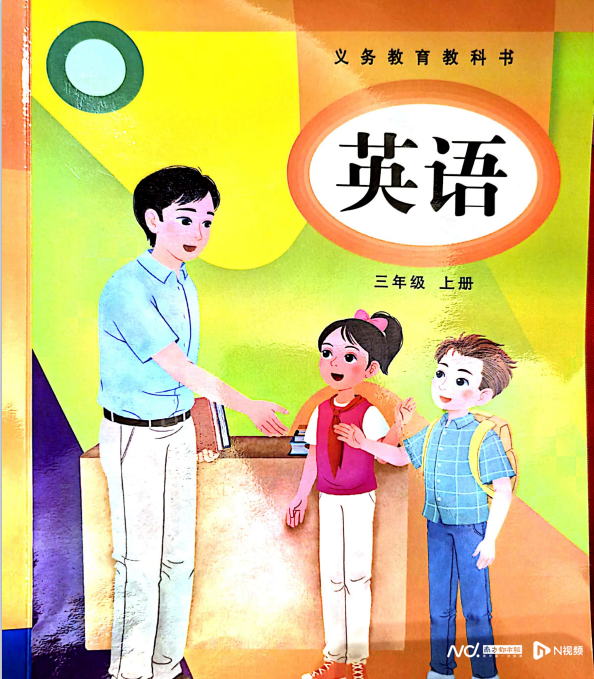
家长直呼英语新教材太难了?如何帮孩子解决英语难题?
今年9月新学期英语教材换新的消息,让许多家长忧心忡忡,广州先是三年级和七年级学生统一换上英语新版教材。翻开新教材的家长们更不淡定了。

全英课本,句子长,单词也不简单,这不仅是要卷孩子,爸妈也要自鸡啊!
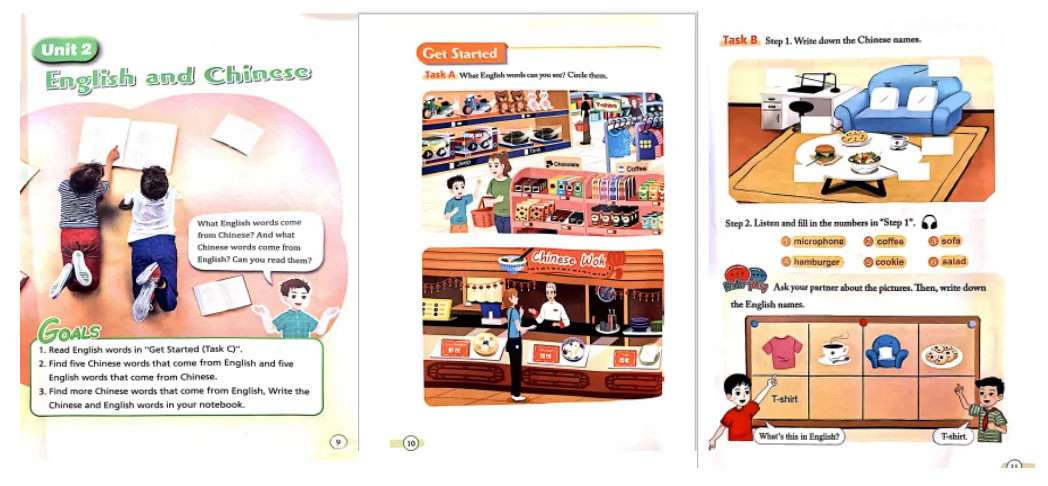
诚然,新版英语教材的确对孩子的英语能力提出了更高的要求,但也更注重培养孩子的实际英语应用能力,同时也正式把自然拼读(phonics)这一语音知识纳入到教学中。
这就意味着我们家长当年的那一套英语学习方法已经不再适用于孩子,想要孩子爱上英语、轻松学会英语,真正需要的是找到一套科学正确的方法。而新教材也给我们指明了方向——自然拼读。而英美国家的孩子能快速学会英语,除了天然的语言环境外,借助的也是自然拼读这一学习武器。
1/什么是自然拼读
利用自然拼读,可以实现自主阅读。美国专家们对自然拼读的定义是:
• Phonics instruction helps children learn the relationship between the letters of written language and the sounds of spoken language.
• It’s a method for teaching reading and writing.
自然拼读法帮助孩子学习文字中的字母和语言中的发音之间的关系。它是一种教授阅读和写作的方法。
自然拼读认为字母本身是可以标示发音的,学习自然拼读本质上是学习“字母及字母组合的发音规律”。通过学习大量相同字母组合,让孩子找到常见字母组合的发音规律,像拼汉语拼音一样,把单词的发音读出来。
比如当孩子知道字母f发/f/ ,字母i发/i/ ,字母组合sh发/ʃ / ,那当看到 “fish”这个词时,就可以拼读“ f-i-sh ”,也就知道“fish”怎么读了。

2/自然拼读并不简单
学习自然拼读的好处在于不用像国际音标一样学习一套新的符号体系,非常适合低龄娃,但自然拼读其实并不能解决所有单词拼读问题。
① letter sound不唯一
我们明确一个概念——一个字母在单词中的发音,被称为letter sound。而letter sound与拼音、国际音标的区别是,字母的letter sound不唯一,一个字母在不同单词中的发音是可能不一样的。比如字母c,在cake里面,发的是字母k的letter sound;voice, 发的是s的letter sound。
② 多种发音规律
在自然拼读里,字母和字母组合可以有上百种发音规律,如果仅仅是背诵发音规律,没有语感,很难记忆,也很难真正掌握自然拼读的,还是需要语言环境,大量的输出输入。
③ 不是所有单词都符合发音规律
虽然自然拼读中的发音规律能解决大部分的单词拼读,但还有大约20%的单词属于不规则发音,比如said中的ai就不符合发音规律,对于这些不规则发音单词,只能单独背诵记忆。
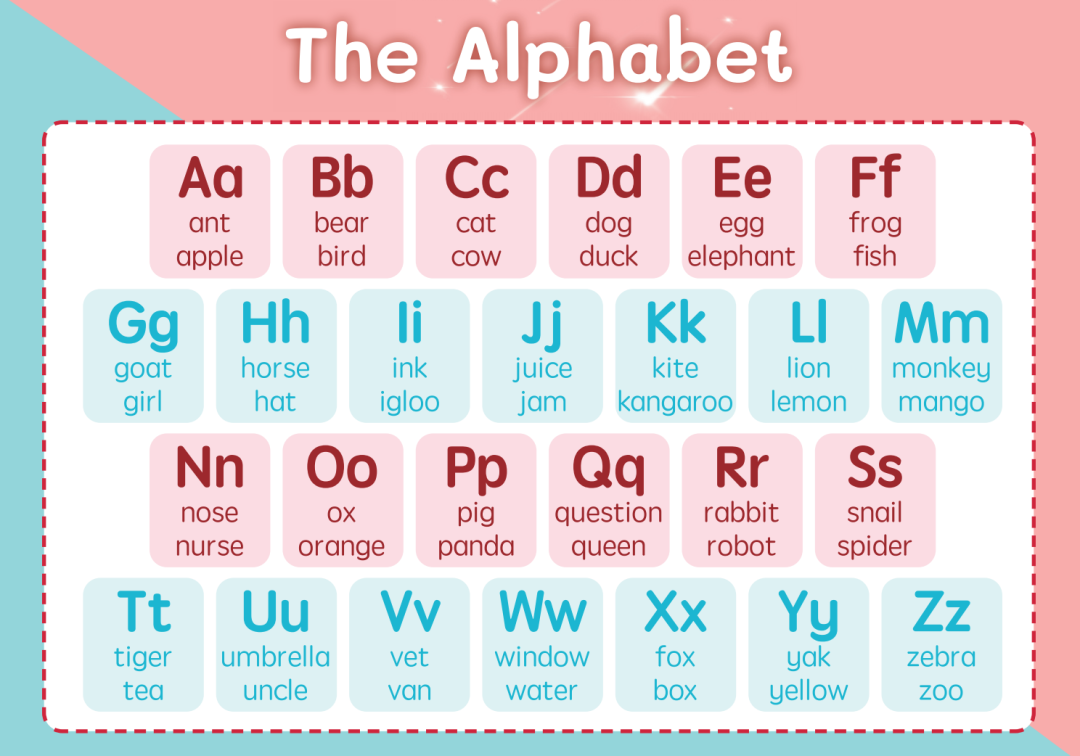
3/如何更好学习自然拼读,衔接学校学习
面对英语新教材,《新课标》对英语学习的新要求,及早开始孩子的英语学习规划,对孩子来说会更轻松一些。
① 把握3-5岁英语学习关键期
英语学习要趁早。0-6岁是孩子的语言学习黄金期,在3-5岁时母语思维不强势,介入英语学习,英语可以成为孩子的第二母语。
如果从3岁开始进行英语启蒙,经过长期稳定的英语能力培养,有了前期打下的基础,孩子之后接触学校英语学习,也不会过于陌生无措,可以游刃有余面对学校的英语学习任务。
② 打造语言环境,培养音素意识
面对自然拼读上百种发音规律,最好的方法便是锻炼语音敏感度,培养音素意识与语感,所以在学习英语初期,听和说应该先行,而后才是视觉上的读和写。有了听说基础,当孩子系统学习自然拼读时,会对字母及字母组合有发音熟悉感,进而熟练掌握发音规律。
ICR外教老师均来自英语母语国家,且具备国际教学自助,中教老师均为英语专八或雅思托福高分背景,保证口音纯正,优质师资、小班教学打造全英高互动环境,保证每个孩子与老师有高频次互动,大量输入输出帮助孩子轻松地习得英语。
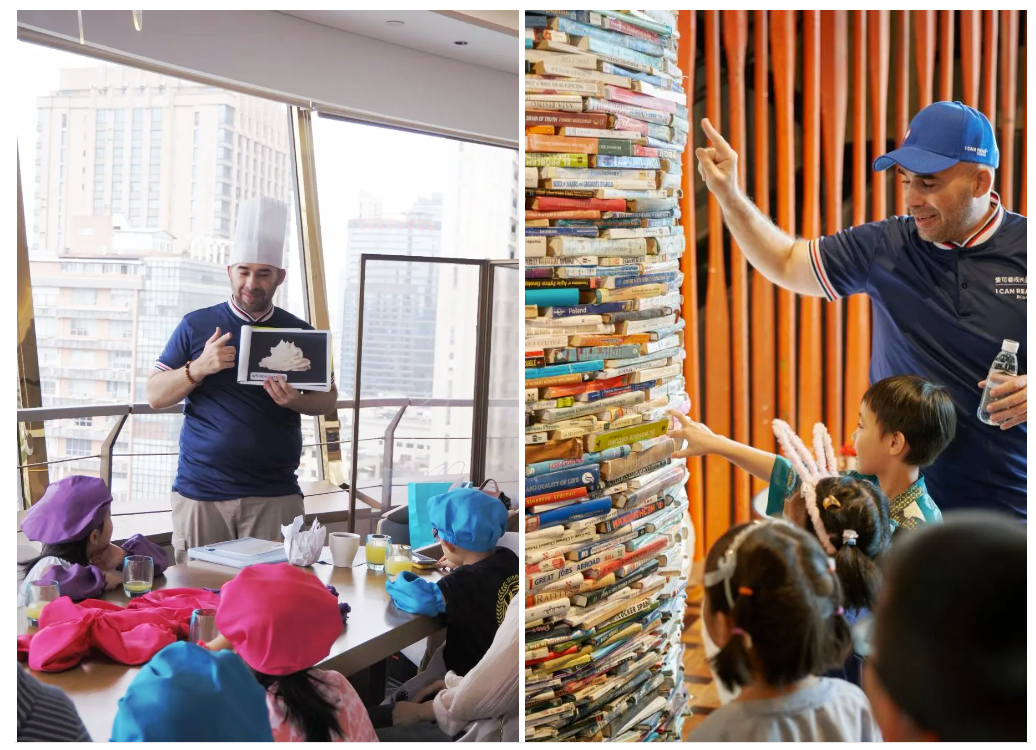
③ ICR编码系统,解决20%不规则发音
自然拼读不能解决的剩下20%的不规则单词发音,难道只能靠死记硬背了吗?实则不然,ICR爱可睿会通过一套自主研发的编码系统,帮助孩子在故事阅读中形成解码能力,熟练掌握单词发音及单词词义。不规则的单词发音难题,也会迎刃而解。
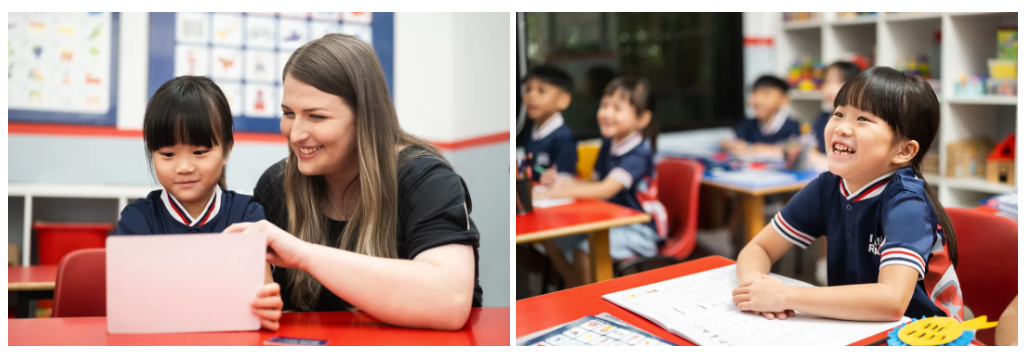
回到开头,针对大龄零基础娃,爱可睿都有相应的课程,但小爱老师还是要强调一点,语言学习要趁早,越晚学越费娃!
英语新教材的使用,对孩子和家长来说都是一个全新的挑战,英语学科不再是传统的应试英语,而是真正成为一门语言应用起来。所以了解语言学习规律,帮助孩子趁早开启英语学习才能真正帮助孩子轻松掌握这门语言。

 01-02
01-02幼儿园英语启蒙的正确打开方式
孩子在幼儿园时期(3~6岁)是语言发展的完备期,在此期间是孩子对语音辨别和模仿等方面的反应十分灵敏,也是学习第二语言的最好时机。随着孩子年龄的增长,对语言的敏感度也会慢慢降低。在我国学习最多的第二外语就是英语,因此,幼儿园英语启蒙格外重要。

很多家长在为孩子启蒙英语时,常常会找不到正确的方法或是陷入误区,使得孩子在学习语言的关键期没有得到进展。今天,就带大家找到正确的幼儿园英语启蒙方式。
首先,创建良好的语言学习环境。中文作为世界上最难学习的语言系统之一,为什么对于中国的孩子来说学习中文没有压力呢?这是因为我们的孩子从小身处的语言环境就是在说中文。同样的道理,孩子的英语启蒙,需要创造英语的语言学习环境。例如通过英文儿歌给孩子“磨耳朵”;和孩子一起读简单的英文绘本激发孩子对英语的兴趣;用简单的英语句式、单词和孩子进行英语对话。在家中营造出较为浓郁的英语语言学习环境,让孩子“习惯”英语。
培养兴趣很重要。对英语感兴趣的孩子和对英语感到厌恶的孩子,学习的效率和成果都差距甚远。培养孩子对英语的兴趣和积极性,可以达到事倍功半的学习效果。例如,放一部孩子喜欢看的动画片英文原版;让孩子自己选择自己喜欢的英语阅读绘本;与孩子一起进行英语的角色扮演活动。通过这些不同的英语学习方式,激发孩子对英语学习的兴趣。
让孩子勇敢说出来。含蓄,是中国人的传统美德之一。但这也导致了很多人(不论是大人还是孩子),在学习第二语言时都会羞于表达。当孩子具有一定的词汇量基础时,就需要鼓励孩子多说。在家鼓励孩子多用英文表达自己的想法,如果可以,让孩子和外国人多进行沟通。这对孩子的语言表达能力和英语语法的理解都有很大的帮助。

选择可以帮助孩子学习的少儿英语学习机构。相信现在的家长对英语学习机构都不陌生。随着大家对幼儿园英语启蒙的重视程度加深,少儿英语机构也越来越受欢迎。但是,少儿英语机构良莠不济,正确选择才能真正的帮助孩子。参考上述幼儿园英语启蒙的方法,在挑选少儿英语机构时,应该注意几点。1.机构最好采用全外教授课模式,让孩子可以快速适应英语学习环境。2.可以培养孩子的兴趣,激发孩子的好奇心培养孩子的自信心。3.机构的环境需要给孩子安全感,幼儿阶段的孩子对外界事物接受度较低,提供良好的环境让孩子可以静下心来认真学习。
幼儿园英语启蒙是孩子在英语学习过程中非常重要的一个环节,把握这一时期不仅能让孩子在启蒙阶段就能形成一定的英语思维、提高孩子英语发音的准确度,还能让孩子终生受益。
 12-31
12-31在家如何帮助孩子提高词汇量?
现在,学习英语都强调从听说读写四个方面全面提高,而这四个方面的能力都离不开词汇量的储备。那么,除了学校课标要求记忆的单词以外,我们还能怎样提高孩子的词汇量呢?
以下这些方法,比“死记硬背”更靠谱哦! 1.不断地重复
重复听一个新的单词十次左右,我们便能深刻地记住这个单词。因此我们在教孩子新单词的时候,一定要确保孩子能明白单词的意思,更重要的是让孩子学会如何正确地使用它,在句子中使用新的单词。
爸爸妈妈可以在开车的时候、逛超市的时候甚至是在公园散步的时候,把这个新的单词融入到对话中,让孩子可以不断重复地听到这个新的单词。如果能在孩子睡觉之前再次重复新学的单词,对于孩子而言印象会更深刻。

2.以视觉形象呈现单词的含义
孩子学习一个新的单词的时候,可以通过图像的方式帮助他们记忆。比如,当孩子学习新的单词“elephant”的时候,家长向孩子展示在电脑、手机或者是书本中“大象”的图片。
另外,和孩子一起以画画的形式将单词描述出来,也是提高词汇量比较有效的方法,因为这样孩子会更容易与这个新的单词产生共鸣。
好好地保留孩子画的图画,每周或者每月让孩子说出图画中的单词,你将会惊奇地发现,他们很快就积累了比较多的新的单词。

3.一起阅读,阅读,阅读!
阅读是让孩子接触大量词汇的最佳方法。孩子阅读的内容越多,他们在书中看到的单词就越多,那么他们学到的单词也会越多。父母要养成和孩子一起读书的阅读习惯,最好能每天固定一个时间专门陪孩子一起阅读。
在阅读的过程中,如果遇到孩子不认识的单词,父母可以大概解释这个单词的含义,然后在阅读完毕后,问孩子是否还记得这个单词要表达的是什么意思,这对提高孩子的词汇量很有帮助。
当孩子养成良好的阅读习惯后,父母还可以和孩子一起讨论阅读的内容,帮助孩子更好地理解。

4.不要用过多的新单词“轰炸”他们
无论是成年人还是孩子,一次性接收过多新的内容,很有可能什么都记不住。因此,不要在同一时间给孩子输入过多的新单词,我们建议父母可以每周为孩子挑选5-6个新单词。
这些新的单词最好是选自日常对话中会用到的,然后在日常生活中提高使用这些单词的频率。家长越多使用某个单词,孩子对这个单词的记忆就会越牢固。

记住,生活中每天都会有很多机会可以帮助您的孩子学习和发现新的单词,但更重要的是,为孩子营造一种热爱新单词的氛围。因为学习词汇的过程越愉快,孩子提高词汇量的速度也会越快。 
More Tips to Help Your Child Expand Their Vocabulary To succeed in school and indeed life, children need a lot of words. Whilst the majority of vocabulary acquisition is done in school, kids can learn a lot from the adults in their life i.e. you. I Can Read have collaborated further and are happy to present you with even more tips to expand your child’s vocabulary.
1.Repeat, Repeat, Repeat
Typically, you need to hear a word approximately ten times for it to stick. When you introduce your child to a new word, make a note of it and strive to use it again in conversations. Try use the word in a variety of different contexts. This is an easy approach that doesn’t require too much effort. Bring up new words in the car, supermarket or even walking in the park. Repeat the words or use them again ideally before bedtime that same night.
2.Picture it
As your child acquires new words help them picture the word. For example if the word is a noun, show your child the object or show them a picture of it on your computer or in a book. Even better, if you have time, get them to draw it. This will ensure it resonates with them. Keep the pictures and review them weekly or monthly. You’ll be surprised how quickly they will accumulate new words.
3.Read, Read, Read.
We may be starting to sound like a broken record player but the message is clear, books are the best way to expose kids to a wide vocabulary. The more a child reads, the more words they see in print and the more words they will learn. Read with your child as often as possible. If you come across a word they don’t know, give your child the definition and continue reading. When you are finished reading ask them if they remember what it means. This is a good system and it will quickly become habit.
4.Don’t bombard them with too many words
Don’t overdo it. If you overwhelm a child with a plethora of new words they are unlikely to remember any of them, this applies to adults too. Our suggestion to you as parents is choose five or six new words for your child to learn each week. See how often everyone in the family can use those words in everyday conversation.Make this part of your routine and it will begin to feel like second nature.
Remember new words are everywhere and every day there are so many opportunities for you to help your child learn and discover new vocabulary.
Happy Vocabulary Building!
 12-30
12-30你了解儿童节吗?儿童节的英文是什么?
在我国,每年6月1日是属于孩子们的节日,每到这一天学校会为孩子们组织一系列活动,很多家长也会带孩子们去游乐园水族馆等地方玩。我们将这欢乐的一天称为儿童节。那么你知道儿童节的英文怎么说吗?你知道儿童节的由来吗?
我们通常说的儿童节,其实就是国际儿童节,英文是International Children's Day(或称为Children's Day)。在儿童节当天,我们就可以用儿童节的英文说:Happy International Children's Day!

了解了儿童节的英文,现在我们来了解一下儿童节的由来。如今我们会以各种方式来庆祝儿童节,但儿童节最初设立时其实并没有想象的那么美好。
国际儿童节的设立,与二战时期发生的利迪策惨案有关。为了防止这类恶性事件再次发生,反对虐杀和毒害儿童,保障世界各国儿童生存权、保健权和受教育权、抚养权,1949年11月,国际民主妇女联合会在莫斯科举行的理事会议决定以后每年的6月1日为国际儿童节。

而我国最早的儿童节是每年的4月4日,是1931年根据中华慈幼协会的建议设立的,1949年12月,新中国成立之前的“四四儿童节”通常会以唱歌比赛、操练比赛来庆祝儿童节。新中国成立后,中华人民政府政务院决定废除旧儿童节,将6月1日国际儿童节作为统一的儿童节。但在民间的约定俗成下,香港和台湾的儿童节日期还是每年的4月4日。
世界上许多国家都选择6月1日作为儿童节,但有些国家还是会选择自己国家设立的儿童节日期,并且有一些十分有趣的习俗。

日本:日本可以说是世界上庆祝儿童节次数最多的国家了。3月3日女孩节是专为小女孩设立的,在这一天女孩子们会收到父母送的精致玩偶,5月5日男孩节是希望家中男孩可以鲤鱼跃龙门,11月15日“七五三”儿童节是为了三岁、五岁和七岁的小朋友设立的。
韩国:韩国的儿童节是每年的5月5日,由“男孩节”演变过来。这一天同时也是韩国的公假日,在这一天孩子们需要穿上韩服,体验传统的韩国文化。
巴西:以热情著称的巴西,每年的儿童节设立在8月15日,这一天同时也是巴西的“全国防疫日”,所以每到这一天,各地的医生们都要为孩子们看病。10月12日的“圣母显灵日”也常常作为儿童节,也会有一些庆祝活动。
 12-30
12-30生日用英语怎么说,你的发音正确吗?
生日用英语怎么说?相信每一位小朋友在过生日的时候,都会看到自己的生日蛋糕上放着一块写有:Happy birthday的巧克力牌子。这是生日快乐的意思。生日用英文说是birthday,但是生日用英文怎么“说”才是正确的呢?
生日birthday的英式发音是['bɜːθdeɪ],而美式发音为['bɝθde],看上去好像差不多,但是还是要注意读音上的细节区分。区分清楚英音和美音,对学习英语也会有很大的帮助哦。

例句:
He gave her an expensive fur for her birthday.他送给她件昂贵的毛皮衣服作为生日礼物。
Tom's birthday is this week.汤姆的生日就在这个星期。
相关短语:
birthday present 生日礼物
birthday card 生日卡片
birthday party 生日宴会
happy birthday 生日快乐
知道了生日用英语怎么说,再来让我们了解一下生日的起源和一些趣事吧。
在希腊文化中,希腊人相信人生而就有自己的守护精灵(spirit),它将陪伴人们度过一生。自己的专属精灵和某个神有着神秘的联系,而精灵看顾的人正式这个神的生辰产生的。罗马人也有同样的认知。
而在生日蛋糕上点蜡烛(candle)的习俗同样源于希腊人。因为根据古希腊的民间传统信仰,在生日点燃的蜡烛是具有神奇的力量(power),这股力量可以帮助人实现一个愿望(desire)。同时点亮蜡烛也意味着对过生日的人表达敬意,为他带来好运气(luck)。祝贺和送礼同样是生日必不可缺的流程,这一点中外都是有的。在西方,这一习俗来源于魔法(magic),生日贺词可以带给人好运。

随着世界历史的不断发展,庆祝生日已经成为世界各地(world)的传统。虽然大多庆祝方式不尽相同,但也有一些地区至今保存了有趣(interesting)而又独特的庆生方式,例如我国的传统就是在生日当天吃长寿面(birthday noodles)。

澳大利亚:全家人要在孩子生日当天到海里游泳(swim in the sea),随后在海滩(beach)上野餐(picnic),来庆祝孩子的生日。
俄罗斯:战斗民族俄罗斯,过生日时不是吃蛋糕,而是吃生日馅饼(pie)。
挪威:过生日的孩子需要咋全班同学面前与舞伴跳舞,其他小朋友为其唱生日歌伴奏。
 12-20
12-20阅读是一切学习的基本前提
阅读是一切学习的基本前提
8 Reasons why reading is so important for children
阅读是孩子成长过程中必须培养的一项重要技能,对于孩子在小学、中学甚至是大学的求学过程中,都起到了关键性的影响。
无论是学习新的知识还是查询有用的信息,都需要具备阅读能力。阅读能力直接与理解、沟通、思考、运用、表达、写作等能力挂钩,是影响学习成绩的最主要因素,同时也会影响孩子日常生活的方方面面。
Reading is an important skill that needs to be developed in children. It is necessary for survival in the world of school, college and university. The ability to learn about new subjects or find helpful information depends on the ability to read. Poor reading is the single most significant contributor to underachievement at school and affects every aspect of a child’s life.
以下就是阅读对于孩子来说非常重要的八大原因:
Here are eight reasons why reading is so important for children:
1.阅读有助于培养重要的语言技能
阅读的书越多,孩子的语言能力就会越强。通过阅读,孩子能学习到正确的短语搭配和语法规则,提高孩子的口语能力,让孩子更会表达自己。
有的时候,孩子可能会遇到不认识的新单词,但是他们可以结合上下文来猜测这个单词的意思,从而加深对生词的理解。
✦ Books Help Develop Vital Language Skills
The more children read stories and are read to, the greater their language skills. Reading exposes children to proper grammar and phrasing.
It enhances development of spoken language skills and aids a child’s ability to express themselves verbally.
Even when a child doesn’t understand a new word, they absorb meaning from the context, which in turn deepens their understanding of it the next time they encounter the word.
2.阅读会激发孩子的想象力
当我们阅读的时候,我们的大脑会将书中的人物、地点以及发生的事情转化为图像。当我们的孩子在读故事书的时候,他们不仅会试着感受书中人物的情感活动,还会利用插图、凭借书中的情节,在脑海中想象书中所描绘的世界。
家长可能会被书中的文字所限制,无法延伸想象,但孩子所拥有想象力的丰富程度远远高于成人,他们可以通过阅读来激发自己无限的想象力和创造力。因此提升和发展想象力的关键在于,从小培养好的阅读习惯。
✦ Reading Develops A Child’s Imagination
When we read our brains translate descriptions of people, places and things into pictures. When a child is engaged in a story, they are imagining how characters are feeling.
You are only limited by what you can imagine and the worlds described in books, as well as the views and opinions of others will help a child expand their understanding of what is possible.
By reading written descriptions, a child’s mind can create an image in their head, instead of having the image placed in front of them on a TV screen.
3.阅读可以提高注意力和专注度
与其他丰富多彩的活动不同,孩子在阅读的时候需要安静地坐着并保持较长时间的全神贯注。当孩子被书中的情节吸引时,他的注意力将会在书中停留很长一段时间,并完全沉浸在书中世界。
阅读不仅是一切学习和理解力的基本前提,还是所有认知行为中最能促进专注力的。如果孩子养成了良好的阅读习惯,他们会比其他孩子更专注,也会更爱学习。
✦ Reading Improves Focus and Concentration
Unlike many other activities children engage in on a daily basis, sitting down with a book takes long periods of focus and concentration.
Being fully engaged in a book involves closing off the outside world and being immersed in the text, which over time will strengthen attention span.
When reading, children have to sit quietly so they can focus on the story. If they read regularly, they develop the ability to do this for longer periods of time.
4.阅读有助于扩充词汇量
喜欢阅读的孩子,通过书本提升自己的语言能力的同时,词汇量也会积累得更多。这些孩子在阅读的过程中能积累到较多的好词佳句素材,无论是写作还是日常沟通,他们都能有更出色的表现。
✦ Reading Expands Vocabulary
A prolific reader’s vocabulary is simply larger. Reading improves a child’s vocabulary and leads to more highly-developed language skills.
This increases exponentially the more a child reads, giving them extra words to use in everyday life.
5.阅读能提高理解能力和学习能力
爱阅读的孩子能够利用他们脑海中的丰富词汇量,快速提取、理解听到的或看到的语言的意义。同时,他们可以对学习内容进行精细加工,这也是形成长期记忆的主要方法,因为理解性记忆的效果会比机械性记忆的好更多。
✦ Reading Improves Learning Ability
The more you read, the more you understand. Through reading, children will begin to understand the world more. And they can transfer the short-term new knowledge into their long-term memory.
6.阅读能提高沟通能力
在日常生活中,喜欢阅读的孩子往往会是更善于沟通的人,因为他们拥有更多的词汇选择和更好的沟通技巧,同时他们也可以更准确地表达出自己内心的观点。
✦ Reading Improves Communication
Children who read a lot tend to be better communicators as they have a more varied range of words to express how they feel and to get their point across.
7.阅读能扩充知识面
“书中自有黄金屋”,孩子可以从书中学到历史、科学、人文、自然等不同类的知识。孩子读的书越多,他所涉猎的知识面也就会越广,这对于他的学习和生活都会有很大的帮助。
✦ Reading Expand the Breadth of Knowledge
Through reading, children can expose themselves to new things and new information. They will begin to understand the world more.
8.阅读能提高解决问题的能力
在阅读的时候,孩子能从书本中获得解决问题的不同方法,这些方法技巧会在他们需要用到的时候从脑海中浮现,所以阅读能力强的孩子在处理问题上,会比欠缺阅读能力的孩子反应要快。
✦ Reading Develops Problem Solving Skills
Reading is an essential way which can help children find out some solution.
Whenever they meet with difficulties, they will quickly adapt and timely resolution.
阅读是打开世界的一扇门,如果能从小就引导孩子喜欢阅读,不仅能提高他们学习能力和思考能力,还能最大限度地激发他们的想象力,帮助他们找到通向世界的更广阔的道路。
So please, inspire your children to read. Give them access to plenty of reading material that they’ll enjoy and discuss it with them. Sample everything – traditional printed books, assigned school reading, classic children’s novels, fairy tales, eBooks; even the Internet. As you help your child you may find there is a world full of wonderful children’s literature that YOU can enjoy too.
 12-20
12-20如何提高孩子的阅读能力?
如何提高孩子的阅读能力?
How to read well?
阅读是学习语言中最重要的环节,通过阅读,孩子不仅可以全面提高听说读写的能力,还能提高运用语言的能力。提高孩子的英语阅读能力,有以下三个秘诀。
Reading is one of the most important parts of language learning. Stories allow children to easily practice all four language skills - listening, speaking, reading, and writing. A good reading passage can highlight children’s language abilities. There are three main ways to perfect your children‘s reading skills.
1.让孩子大声朗读英语
朗读有着极其重要的教育意义,是提升各项语言能力的绝佳方法。孩子可以通过朗读来锻炼自己的发音,当他们参与到分组轮流朗读的时候,必须要全神贯注地倾听别的同学朗读的内容,以便跟上进度,与此同时还能增强孩子的团队合作能力。在家陪孩子学英语的时候,也可以选择玩“大声读英语”的游戏,孩子和爸爸妈妈轮流读一篇文章、一句话、一个单词,甚至是一个发音,长久坚持后,对应的发音组合就会形成“运动记忆”,孩子会更习惯正确的发音。通过大声朗读英语,孩子可以锻炼眼脑并用,提高阅读的速度,丰富阅读的方式,让阅读变得更有趣。
✦ Reading out loud
Reading out loud in a group is an excellent way to improve a variety of language skills. When it is his or her turn to read, your child practices pronunciation by saying the words out loud. When other children are reading, your child must listen closely and follow along through the passage. By listening and reading in front of one another, children can understand how the different sounds are spelled and spoken.
Reading out loud can easily be turned into a game with children taking turn reading one paragraph, one sentence, one word, or even one sound at a time. Finally, reading out loud is a group activity that enhances a sense of cooperation and teamwork.
2.锻炼阅读理解的能力
当孩子在阅读的时候,可能会遇到看不懂的地方,爸爸妈妈可以在孩子阅读新的书本之前,先把这本书的内容读一遍给孩子听,大概告诉他们这本书讲的是什么。他们在听故事的时候,会边听边思考,这样最大的好处在于可以让孩子全身心融入到故事之中。
孩子自己看完书之后,父母可以引导他们复述故事的内容,锻炼他们的阅读理解能力的同时,还能提高他们的分析能力。
虽然有的时候我们会比较重视孩子能不能从故事中学会单词和正确地发音,但其实理解故事的内容也同样重要,因为故事会传递给孩子积极的生活意义。更重要的是,理解故事的内容,会让孩子沉浸在故事中,并且发掘出故事的乐趣。
✦ Practice reading comprehension
When reading a new book, parents can read it to your children first and tell them the general idea. Listening closely to the story will also allow for a greater understanding of its meaning.
Reading comprehension ensures that children can answer spoken and written questions about the story afterwards. Stories often convey a message that can teach our children good life lessons. Although it is important to recognize words and say them correctly it is also important to understand the content of the story. And most importantly, understanding a story lets children delve into topics of their choosing and have fun.
3.一起享受阅读的乐趣
鼓励孩子培养每天都阅读的习惯的同时,父母可以参与到其中,与孩子一起阅读。一开始可以选一些孩子感兴趣的内容来阅读,无论是有趣的故事还是恐怖的故事,有关恐龙的故事还是与公主相关的故事,都可以选来阅读,让孩子先对书产生好感。当孩子发现阅读的好处时,他们会开始真正地享受阅读的时光。
在阅读的时候还可以穿插很多有趣的阅读游戏,当孩子觉得阅读非常有趣的时候,学习语言就不再是一项任务,而是一种爱好!
✦ Have fun together
Once children begin to see the benefits of reading they can start to enjoy it. Find stories that cater to the interests of your child and try to read along with them at home. It doesn’t matter if they’re funny stories or scary stories, stories about dinosaurs or princesses. As long as your child has an interest in the content they will be more likely to associate reading with fun. There are also a number reading games you can play with your child to make reading more fun. Once a child enjoys reading, language learning is no longer a task but a hobby.
培养孩子对阅读的兴趣,不是一朝一夕就能做到的事情,需要耐心和信心逐步引导,让孩子真正热爱读书,让阅读成为孩子的一种生活方式!
Fostering children‘s interest in reading can't be achieved in a short time. You need to be patient and lead them progressively.
Learning can become a way of life which helps your children to achieve their greatest potential.
 12-20
12-20让阅读变得更有趣的创意方法
让阅读变得更有趣的创意方法
Creative Ways to Make Reading Fun
随着网络科技的发展,我们越来越依赖网络的同时,孩子也越来越难找到完整的时间来阅读。但作为父母,真正高质量的陪伴,其实是陪孩子一起阅读。
阅读不应该局限于课堂上或者培训班上,父母陪着孩子一起阅读很有可能会是孩子在课堂外阅读的唯一时间。而且,培养阅读习惯和独立阅读的能力对孩子来说非常重要。
我们准备了一些令阅读变得更有趣的方法。这些方法都比较简单,有些需要几分钟,有些可能会花费长一点的时间;有的可以一个人完成,有的则需要整个家庭共同来完成。通过这些有趣轻松的方法,您很快就会发现,您的孩子越来越享受阅读的时光。
It is fair to say that with so much technology and online distractions it can be hard for children to find the time to read. This does not mean however, as parents you shouldn’t make reading with your child a priority.
Reading should not just be the preserve of the classroom or tuition sessions. Regular read-aloud or solo reading time is extremely important. If you think about it, the time you set aside for reading with your child may be the only time your child will read, or be exposed to reading, outside the classroom.
Here are some fun suggestions to help make reading fun. Most of the activities are pretty simple. Some take just a few minutes; some could take a little longer. Some could involve another person and others could involve the entire family. By taking a playful, pressure-free approach, you'll soon ensure your child enjoys reading time.
1.首音游戏
刚开始学习英语阅读的读者会非常认同字母是代表声音的符号,因此可以在英语阅读启蒙阶段进行强化声音的游戏。从所有孩子熟悉的词开始,如他们的名字和名字中的第一个音节,要求他们在房间里寻找与名字相同的首字母发音的物品,又或者一起朗读诗歌、童谣和押韵的书本,都是强化声音概念的好方法。如果想要让孩子更好地融入到书本的故事中,还可以用故事主角的姓名来做练习。这是我们在I CAN READ课堂中会惊醒的一项游戏,很受我们的学生欢迎。
✦ First Sound Game
Early readers are still coming to terms with the notion that letters are symbols that stand for sounds. To familiarize him with sounds, read poems, nursery rhymes, and rhyming books together A good way to reinforce the idea of sounds is to start with the most familiar word of all: your child's name and the first sound in their name. Ask them to find things around the house that start with the same first letter sound as their name. To incorporate into the story get them to do the same exercise with the main characters name. This is an activity we do in the I Can Read classroom and our students love it.
2.阅读前的预热
如果您的孩子不了解故事的内容,那么他们可能会失去对阅读的兴趣和热情。因此我们可以在开始读书之前,让孩子先看一下书本里的图片并向他们提出问题,如“你觉得这个故事讲的会是什么?”“你觉得接下来会发生什么事情?”等问题,通过图片让他们猜测故事的发展线索,通过问题引导他们预测故事会发生什么,以此来吸引他们即将发生的事情感到兴奋和激动。
✦ Pre-Game the Story
If your child doesn't comprehend what a story is about, they are likely to not be enthusiastic about reading time. Before starting the book ask your child to look at the pictures and ask questions to get them excited and interested about what's coming: "What do you think the story is going to be about?" "What do you think will happen?" Questions like these help them predict the story while the pictures offer them clues to what’s about to happen.
3.随时随地学单词
对于阅读而言,最重要的是拥有广阔的词汇量。在阅读的过程中,如果遇到一个特别难的或者从来没见过的单词,您可以停下来问孩子知不知道单词的意思,让他们根据上下文来猜测单词的含义。当阅读完一个故事后,最好能让您的孩子学到两至三个新单词。而且可以随身带一个笔记本,把生词记录下来并把它加入到日常的对话中,每周还可以测试一下孩子是否真的掌握了新的单词。
✦ Pick Out Words
Building a broad vocabulary is essential for reading comprehension. Stop occasionally if you come across a particularly difficult or unusual word, ask your child what they think it means, have fun with potential meanings but make sure by the end of the story they have a take-away of at least two or three new words. If this is done weekly just think how quickly your little learner will acquire new vocabulary. Keep a notebook with the words for yourself so you can incorporate the new vocab in your daily conversation from time to time.
通过这三个方法来学习阅读,您和您的孩子将会发现阅读的时光真的很快乐!
Happy Reading!
 10-16
10-16家长直呼英语新教材太难了?如何帮孩子解决英语难题?
今年9月新学期英语教材换新的消息,让许多家长忧心忡忡,广州先是三年级和七年级学生统一换上英语新版教材。翻开新教材的家长们更不淡定了。

全英课本,句子长,单词也不简单,这不仅是要卷孩子,爸妈也要自鸡啊!

诚然,新版英语教材的确对孩子的英语能力提出了更高的要求,但也更注重培养孩子的实际英语应用能力,同时也正式把自然拼读(phonics)这一语音知识纳入到教学中。
这就意味着我们家长当年的那一套英语学习方法已经不再适用于孩子,想要孩子爱上英语、轻松学会英语,真正需要的是找到一套科学正确的方法。而新教材也给我们指明了方向——自然拼读。而英美国家的孩子能快速学会英语,除了天然的语言环境外,借助的也是自然拼读这一学习武器。
1/什么是自然拼读
利用自然拼读,可以实现自主阅读。美国专家们对自然拼读的定义是:
• Phonics instruction helps children learn the relationship between the letters of written language and the sounds of spoken language.
• It’s a method for teaching reading and writing.
自然拼读法帮助孩子学习文字中的字母和语言中的发音之间的关系。它是一种教授阅读和写作的方法。
自然拼读认为字母本身是可以标示发音的,学习自然拼读本质上是学习“字母及字母组合的发音规律”。通过学习大量相同字母组合,让孩子找到常见字母组合的发音规律,像拼汉语拼音一样,把单词的发音读出来。
比如当孩子知道字母f发/f/ ,字母i发/i/ ,字母组合sh发/ʃ / ,那当看到 “fish”这个词时,就可以拼读“ f-i-sh ”,也就知道“fish”怎么读了。

2/自然拼读并不简单
学习自然拼读的好处在于不用像国际音标一样学习一套新的符号体系,非常适合低龄娃,但自然拼读其实并不能解决所有单词拼读问题。
① letter sound不唯一
我们明确一个概念——一个字母在单词中的发音,被称为letter sound。而letter sound与拼音、国际音标的区别是,字母的letter sound不唯一,一个字母在不同单词中的发音是可能不一样的。比如字母c,在cake里面,发的是字母k的letter sound;voice, 发的是s的letter sound。
② 多种发音规律
在自然拼读里,字母和字母组合可以有上百种发音规律,如果仅仅是背诵发音规律,没有语感,很难记忆,也很难真正掌握自然拼读的,还是需要语言环境,大量的输出输入。
③ 不是所有单词都符合发音规律
虽然自然拼读中的发音规律能解决大部分的单词拼读,但还有大约20%的单词属于不规则发音,比如said中的ai就不符合发音规律,对于这些不规则发音单词,只能单独背诵记忆。

3/如何更好学习自然拼读,衔接学校学习
面对英语新教材,《新课标》对英语学习的新要求,及早开始孩子的英语学习规划,对孩子来说会更轻松一些。
① 把握3-5岁英语学习关键期
英语学习要趁早。0-6岁是孩子的语言学习黄金期,在3-5岁时母语思维不强势,介入英语学习,英语可以成为孩子的第二母语。
如果从3岁开始进行英语启蒙,经过长期稳定的英语能力培养,有了前期打下的基础,孩子之后接触学校英语学习,也不会过于陌生无措,可以游刃有余面对学校的英语学习任务。
② 打造语言环境,培养音素意识
面对自然拼读上百种发音规律,最好的方法便是锻炼语音敏感度,培养音素意识与语感,所以在学习英语初期,听和说应该先行,而后才是视觉上的读和写。有了听说基础,当孩子系统学习自然拼读时,会对字母及字母组合有发音熟悉感,进而熟练掌握发音规律。
ICR外教老师均来自英语母语国家,且具备国际教学自助,中教老师均为英语专八或雅思托福高分背景,保证口音纯正,优质师资、小班教学打造全英高互动环境,保证每个孩子与老师有高频次互动,大量输入输出帮助孩子轻松地习得英语。

③ ICR编码系统,解决20%不规则发音
自然拼读不能解决的剩下20%的不规则单词发音,难道只能靠死记硬背了吗?实则不然,ICR爱可睿会通过一套自主研发的编码系统,帮助孩子在故事阅读中形成解码能力,熟练掌握单词发音及单词词义。不规则的单词发音难题,也会迎刃而解。

回到开头,针对大龄零基础娃,爱可睿都有相应的课程,但小爱老师还是要强调一点,语言学习要趁早,越晚学越费娃!
英语新教材的使用,对孩子和家长来说都是一个全新的挑战,英语学科不再是传统的应试英语,而是真正成为一门语言应用起来。所以了解语言学习规律,帮助孩子趁早开启英语学习才能真正帮助孩子轻松掌握这门语言。



